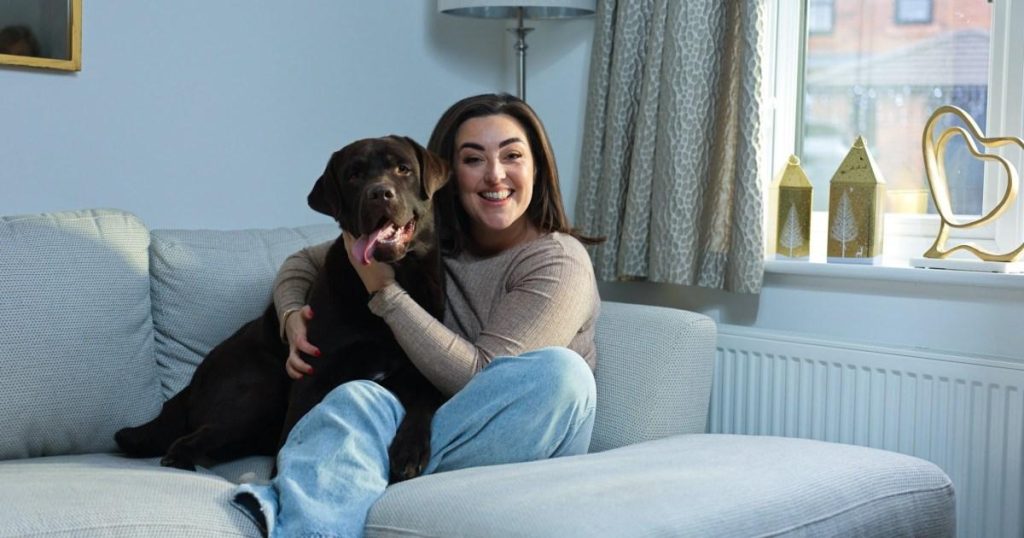Bianca Perea’s Journey: From Terminal Diagnosis to Cancer-Free
Bianca Perea, a 32-year-old trainee lawyer from Manchester, embarked on a remarkable journey from a terminal bowel cancer diagnosis to becoming cancer-free, thanks to a groundbreaking liver transplant, the first of its kind in the UK. Her story is one of resilience, hope, and the transformative power of medical innovation, underscored by the profound generosity of organ donation. Bianca’s initial symptoms of constipation and bloating seemed innocuous, leading her to consult her GP. However, a subsequent colonoscopy revealed a blockage in her bowel, prompting further investigations. A CT scan delivered the devastating news: Bianca had stage four bowel cancer, the most advanced form of the disease, which had spread to all eight segments of her liver. Doctors initially focused on prolonging her life rather than seeking a cure.
Undeterred by the grim prognosis, Bianca refused to accept defeat. She underwent an intensive regimen of 37 rounds of targeted drug therapy and chemotherapy at Christie NHS Foundation Trust’s local treatment centre in Wigan. This aggressive treatment yielded positive results, enabling her to undergo surgery in May 2023 to remove the bowel tumor. This left the cancerous tumors in her liver as the sole remaining obstacle. Early in her diagnosis, Bianca’s mother suggested a liver transplant, an idea initially dismissed by doctors. However, two years later, as Bianca responded well to other treatments, specialists revisited the possibility, recognizing its potential to offer a complete cure.
The decision to pursue a liver transplant marked a significant shift in Bianca’s treatment plan. While stem cell and bone marrow transplants are established treatments for certain cancers, a liver transplant for bowel cancer was unprecedented in the UK. This innovative approach highlighted the evolving landscape of cancer care, pushing the boundaries of medical possibilities. In February 2024, Bianca was placed on the transplant list. Fortuitously, a donor was found, paving the way for the groundbreaking surgery at Leeds Teaching Hospitals NHS Trust in the summer of 2024. The operation marked a pivotal moment not only for Bianca but also for the future of cancer treatment in the UK.
The success of the transplant was nothing short of remarkable. Within four weeks, Bianca was driving and walking her family dogs, a testament to the speed and effectiveness of her recovery. This rapid progress underscored the transformative impact of the transplant, restoring her to a level of health previously unimaginable given her initial diagnosis. Looking ahead, Bianca plans a holiday and is committed to improving her fitness, embracing the second chance at life that the transplant has afforded her. Her story serves as an inspiration to others facing similar challenges, demonstrating the power of hope and perseverance.
Bianca’s oncologist, Dr. Kalena Marti at the Christie, emphasized the complexity of advanced bowel cancer and the importance of continuous development of new treatments. This innovative approach, utilizing a liver transplant, opens up new avenues for patients for whom traditional treatments have proved insufficient. Dr. Marti acknowledged the generosity of organ donors and their families, highlighting the crucial role of organ donation in enabling such groundbreaking procedures. The significance of organ donation is further amplified by Dr. Ian Rowe, honorary consultant hepatologist at Leeds Teaching Hospitals NHS Trust, where Bianca underwent the transplant. He underscored the life-saving impact of organ donation, urging people to register their decision on the NHS organ donor register and discuss their wishes with their families. Bianca’s case serves as a powerful illustration of the transformative potential of organ donation, extending the possibility of life and recovery to those facing seemingly insurmountable odds.
Bianca’s story embodies the continuous evolution of medical science and the crucial role of organ donation in life-saving interventions. Her journey from a terminal diagnosis to a cancer-free future offers a beacon of hope for individuals battling advanced bowel cancer. It underscores the importance of research, innovation, and the unwavering dedication of medical professionals in pushing the boundaries of what is possible in cancer care. Furthermore, it serves as a poignant reminder of the selfless act of organ donation, a gift that offers the promise of life and renewed hope to those in dire need. The success of Bianca’s transplant paves the way for future exploration of this groundbreaking approach, potentially transforming the lives of countless individuals facing similar challenges.


